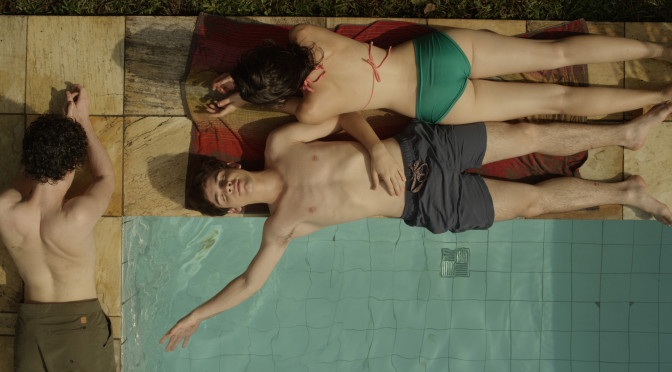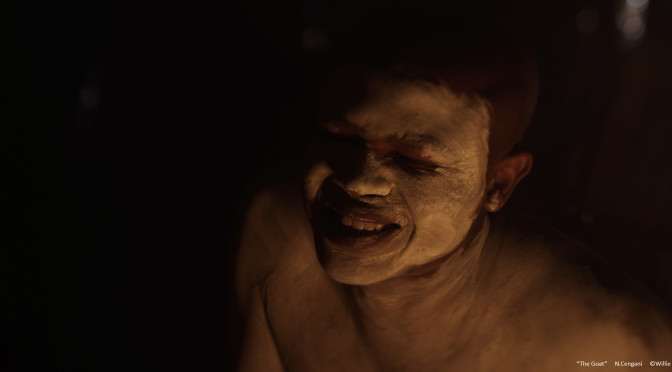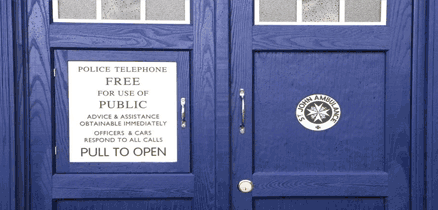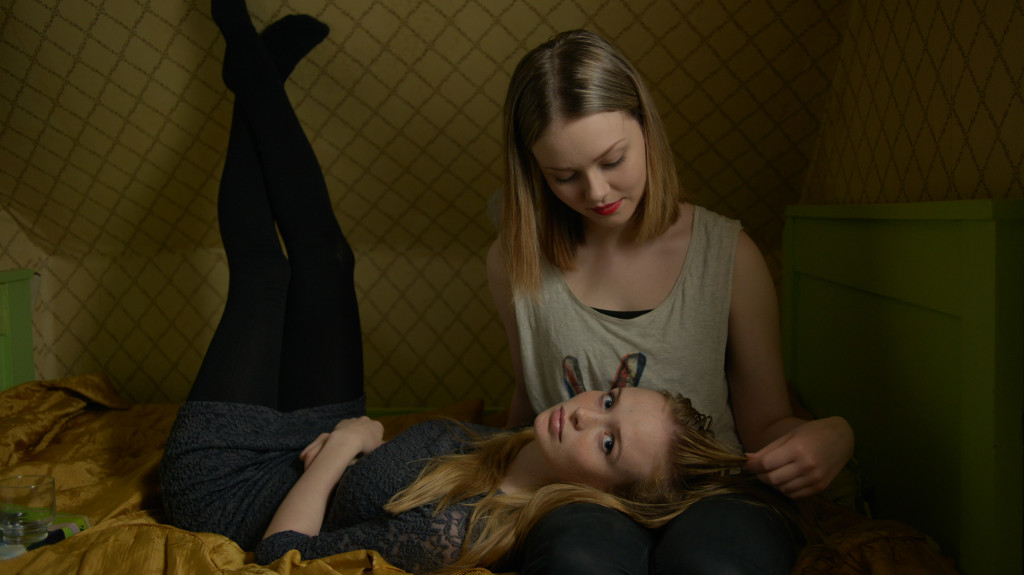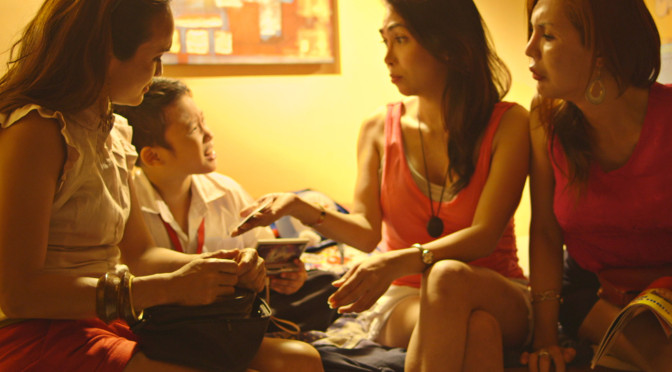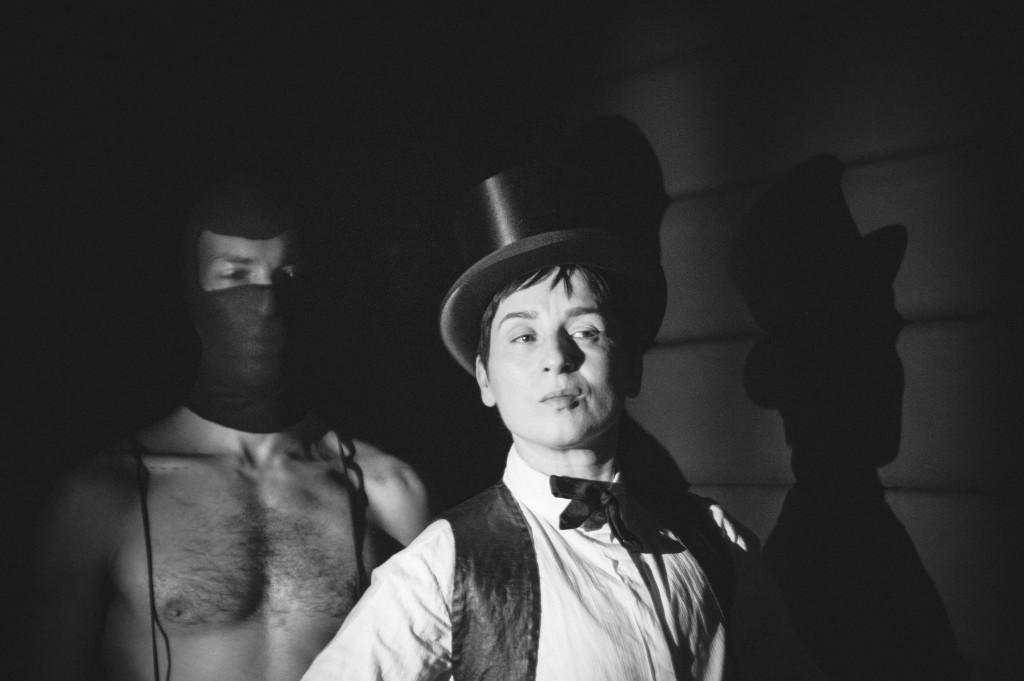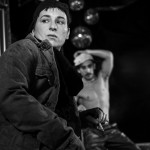52 TUESDAY
(52 Tuesdays)
Billie can’t believe her mother has decided to undergo gender reassignment surgery. James – as her mother now prefers to be known – has always wanted to be a man. Nonetheless, James tries to observe his motherly responsibilities, while he goes through this change. There’s plenty going on in Billie’s own life, too. Enthralled by a clandestine amorous encounter between two pupils, she joins in. When James tries to protect Billie, their already fragile relationship threatens to collapse.
Sophie Hyde, known for her documentary films, makes use of a documentary style in her first drama. Filming took place chronologically over a period of one year with the story being developed alongside.


Kino, Uhrzeit
AS ROSAS BRANCAS
(The White Roses)
A group of people dance at a sports ground to the music of Supertramp. The siblings take flowers to a grave in the deep snow, wearing floral wreaths in their hair. The father directs them. They embrace one another. Memories are invoked by pictures enclosed inside Gabriel’s, the brother’s, amulet. The mother is dead – how will they fill the void she left behind? Each individual family member tries to find their way, is obliged to redefine their course. Calm are the images and gestures that lead us through this film. Of the utmost importance however, is the question of how to proceed with the mother inside one’s heart.
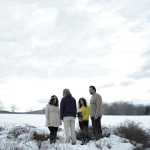

Kino, Uhrzeit
BIM, BAM, BOM, LAS LUCHAS MORENAS
(Bim, Bam, Bom, las luchas morenas)
Three women/three sisters/three professional luchadoras, part of the Dynasty Moreno: Rossy, Esther and Cynthia are competitive wrestlers on the ring. But they also bring lucha libre into life, wrestling with knives, pig heads, flowers and feathers! 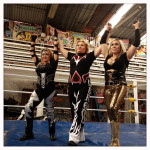
Kino, Uhrzeit
CARAVAGGIO
(Caravaggio)
On his deathbed, the painter Michelangelo Caravaggio (1571–1610) looks back on his life. In flashbacks we see his Milan, the man who fostered his talent, and above all, his relationships with his models. Caravaggio finds the models for his mainly religious paintings among outsiders. On his forays into the world of the poor, criminals, and drunkards, he meets the gambler Ranuccio and his lover, the prostitute Lena. The passionate love triangle comes to an abrupt end when the body of a pregnant Lena is pulled from the Tiber.
Derek Jarman charts the (fictional) portrait of an artist lived between debauchery and social protest, transferring Caravaggio’s art with an artistic verve of his own onto the screen.
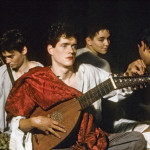
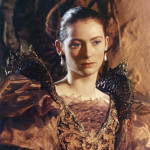
Kino, Uhrzeit
CASTANHA
(Castanha)
52-year-old actor and transvestite João has his best years behind him. He’s ill, has lost both lovers and companions along the way and appears weary, even if none of this stops him from living the way he always has. João shares two rooms with his mother in a housing complex closed off to the outside; at night he performs in small theatres and gay bars.
The film makes just as much time for solitary moments in shabby backstage areas as it does for João’s performances and his unforgettable face, exploring a milieu at once tender, brutal and cruel with precision, its fleeting glamour only skin-deep. Its complex layers of documentary observation and fictional elements coalesce into a story of life and death.

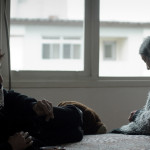
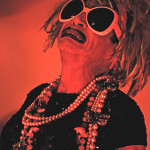
Kino, Uhrzeit
TEDDY Winner 2013
DER KREIS
(The Circle)
Founded in the early 1940s, the network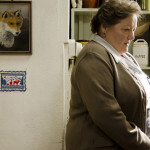 around the magazine DER KREIS (’The Circle’) was the only gay organisation to survive the Nazi regime. Legendary masked balls in Zurich provided 800 visitors from all over Europe. It is there that timid teacher Ernst Ostertag falls in love with drag star Röbi Rapp. Ernst searches for a way to fight for his gayness to be accepted as normal outside the boundaries of ‘The Circle’ network without losing his employment as a teacher.
around the magazine DER KREIS (’The Circle’) was the only gay organisation to survive the Nazi regime. Legendary masked balls in Zurich provided 800 visitors from all over Europe. It is there that timid teacher Ernst Ostertag falls in love with drag star Röbi Rapp. Ernst searches for a way to fight for his gayness to be accepted as normal outside the boundaries of ‘The Circle’ network without losing his employment as a teacher.
Stefan Haupt’s new film uncovers the fascinating universe of one of the first gay liberation communities. Enriched by impressive conversational records with Ernst Ostertag and Röbi Rapp, the film depicts a decades-long love story.
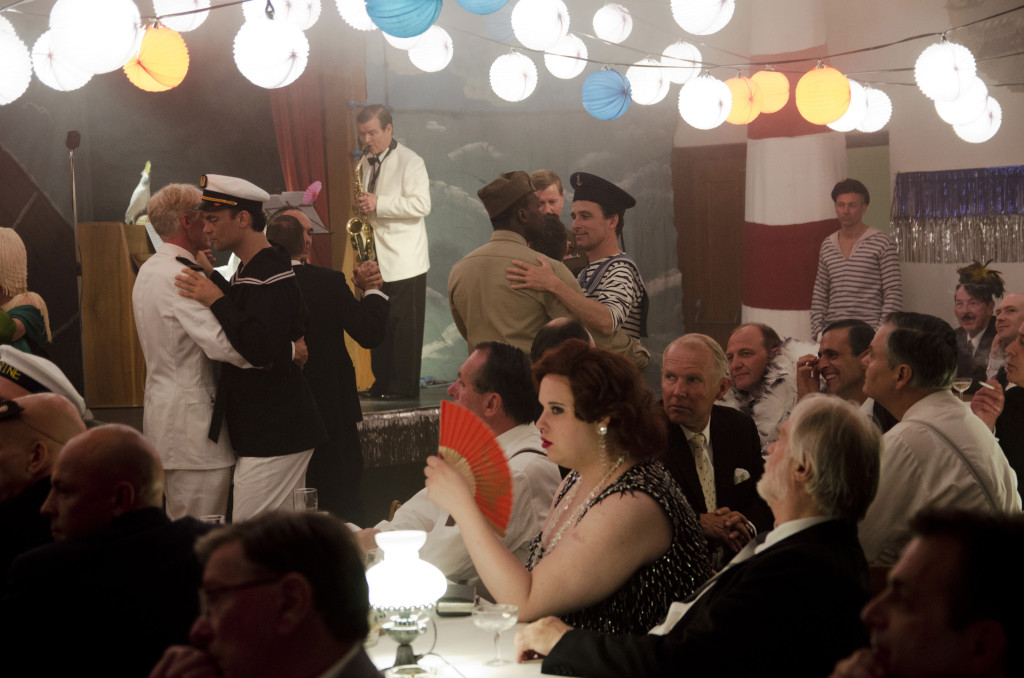
Kino, Uhrzeit
DER SAMURAI
(The Samurai)
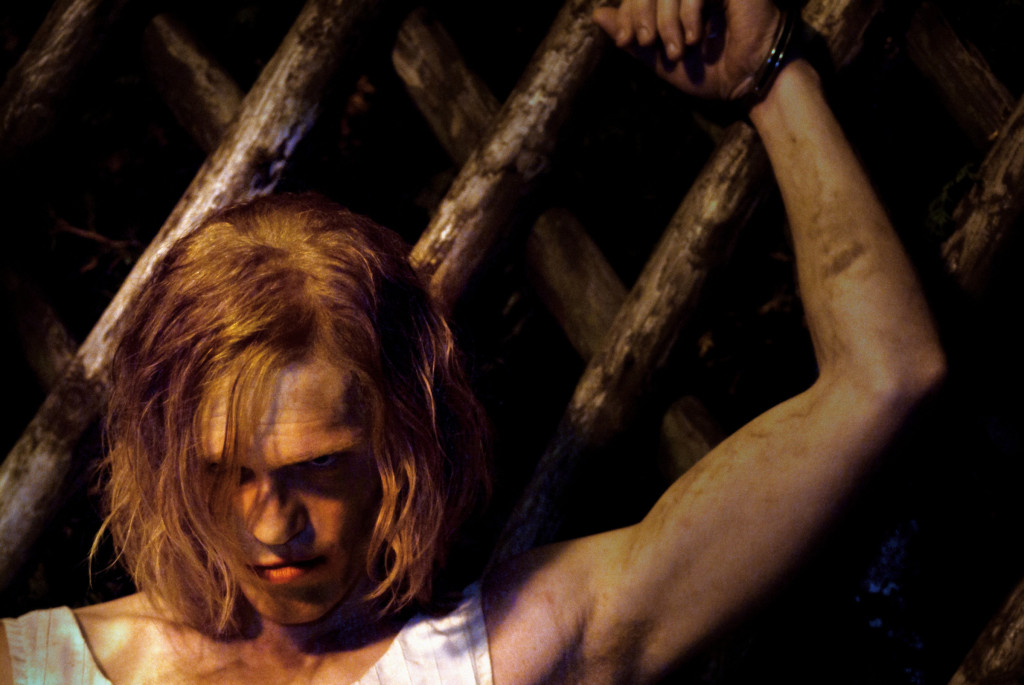
People in the Brandenburg countryside are scared of wolves. But once this night is over people will wish it had just been a wolf that had come to haunt them. Instead, a nightmare in the shape of a nameless stranger with a samurai sword appears at the edge of the forest and leaves a trail of destruction in the village. For young local police officer Jakob the encounter with the warrior forces him to confront his own demons and face long-buried aspects of his personality. The more doggedly Jakob tries to maintain his moral armour and uphold his sense of law and order against the onslaught of the irrational, the more irresistible becomes his secret urge to accept his opponent’s gift.
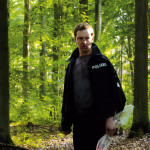
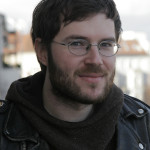
Kino, Uhrzeit
EL CARRO AZUL
(The Blue Car)
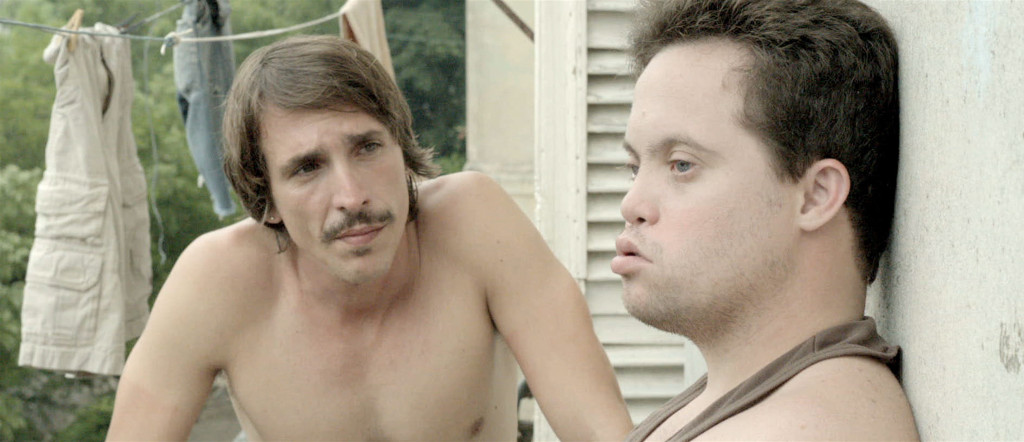
After his grandmother’s death Hansel returns to Cuba from San Francisco to look after his brother, Marcos, who has trisomy 21. The brothers have drifted apart. Marcos misses his grandmother and refuses to accept that she has died. She was the only one he trusted, the only one to look after him so patiently, and to teach him so much about the world. At first Marcos sees Hansel as an intruder in his world. He spends most of his time on the balcony looking up and down the street and playing a game he always used to play with his grandmother: waiting for an orange car. Hansel tries to approach his brother, albeit somewhat awkwardly. He begins to play the game with him, in his own way – hoping to regain his brother’s trust.


Kino, Uhrzeit
FELICE QUI È DIVERSO
(Happy to be Different)
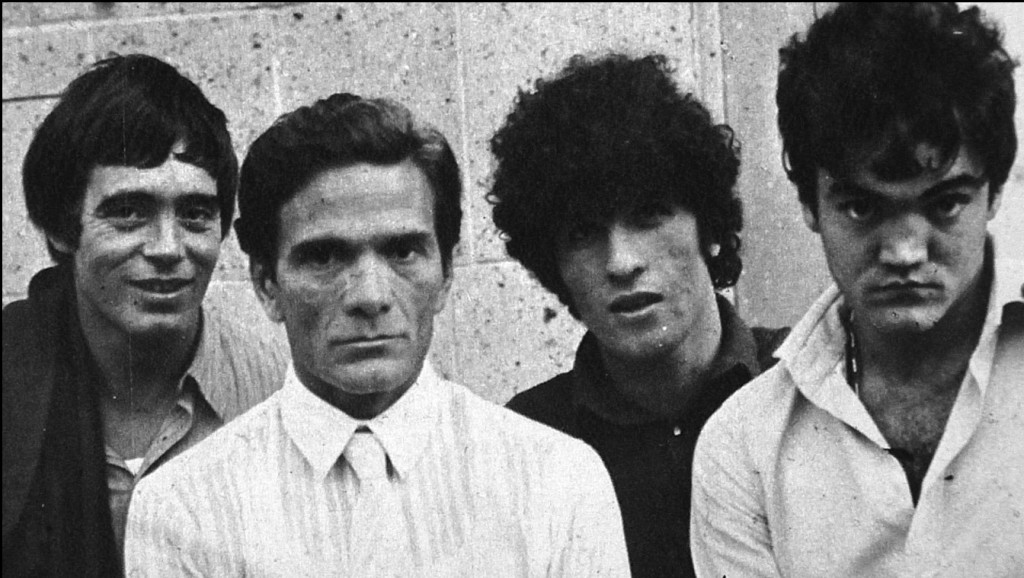
An older gay couple in a city in northern Italy talk about their decades-long relationship. A man describes how he was physically abused by his father because of his sexual identity. Gay men from across the social classes and regions of the country have their say and discuss the different conditions which determined gay life in Italy. There is a discomfiting and controversial discrepancy between the reality of the individual accounts and the media coverage. The latter often portrays gay people with a discriminatory irony or is manipulating, especially where intellectuals are concerned. With FELICE CHI È DIVERSO, Gianni Amelio relates a gay history of Italy since fascist times. His analysis of social conditions is both moving and enraging and refuses to allow the audience to remain indifferent.
Kino, Uhrzeit
FERIADO
(Holiday)
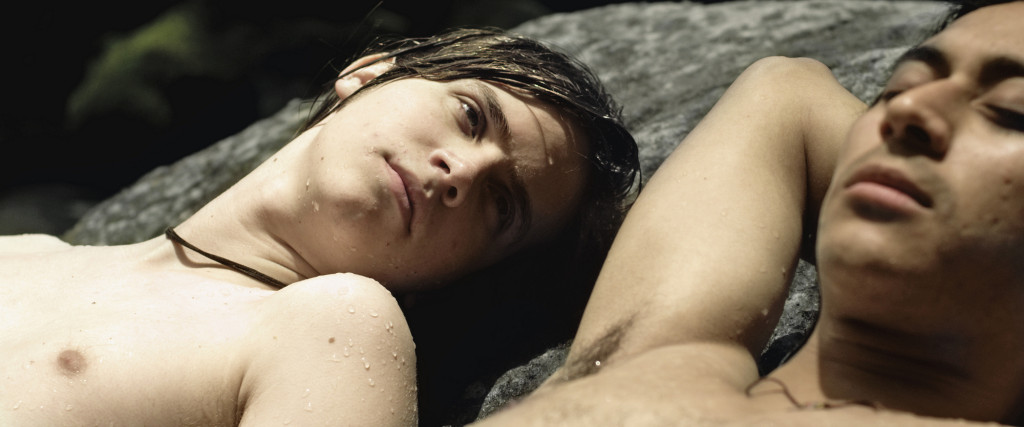
 In 1999, Ecuador’s banking system collapsed in the wake of a corruption scandal. These events provide the historical context for sixteen-year-old Juan Pablo’s enforced sojourn with his rich uncle and his family. One night he observes his uncle’s cronies brutally mishandling a man
In 1999, Ecuador’s banking system collapsed in the wake of a corruption scandal. These events provide the historical context for sixteen-year-old Juan Pablo’s enforced sojourn with his rich uncle and his family. One night he observes his uncle’s cronies brutally mishandling a man  they discover tampering with their cars. After Juan Pablo helps one of the victim’s companions to escape, the pair soon discovers they have more in common than this incident. Juan Pablo finds the courage to pursue his hitherto unknown feelings for this attractive boy, even though he has no
they discover tampering with their cars. After Juan Pablo helps one of the victim’s companions to escape, the pair soon discovers they have more in common than this incident. Juan Pablo finds the courage to pursue his hitherto unknown feelings for this attractive boy, even though he has no 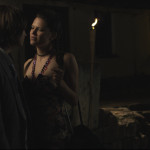 idea if his feelings are reciprocated. These are turbulent times – and not just for the country, for Juan Pablo himself things are beginning to falter.
idea if his feelings are reciprocated. These are turbulent times – and not just for the country, for Juan Pablo himself things are beginning to falter.
Kino, Uhrzeit
FIEBER
(Fever)
It’s the early 1950s and little Franzi is growing up in the small Austrian town of Judenburg. Her oppressive family home is dominated by her feverish and mentally ill father, who is rigid and unpredictable. Her father spent several years in the French Foreign Legion – a period which he partly glorifies but which still also haunts him. Franzi immerses herself in this world by looking at an abundance of beguiling yet disturbing photographs taken at the time by her father. Decades later, Franziska, now a successful photographer but still overshadowed by her father’s memory, undertakes a journey back into his youth. She wants to understand his war trauma and shed light on her family’s past.
growing up in the small Austrian town of Judenburg. Her oppressive family home is dominated by her feverish and mentally ill father, who is rigid and unpredictable. Her father spent several years in the French Foreign Legion – a period which he partly glorifies but which still also haunts him. Franzi immerses herself in this world by looking at an abundance of beguiling yet disturbing photographs taken at the time by her father. Decades later, Franziska, now a successful photographer but still overshadowed by her father’s memory, undertakes a journey back into his youth. She wants to understand his war trauma and shed light on her family’s past.
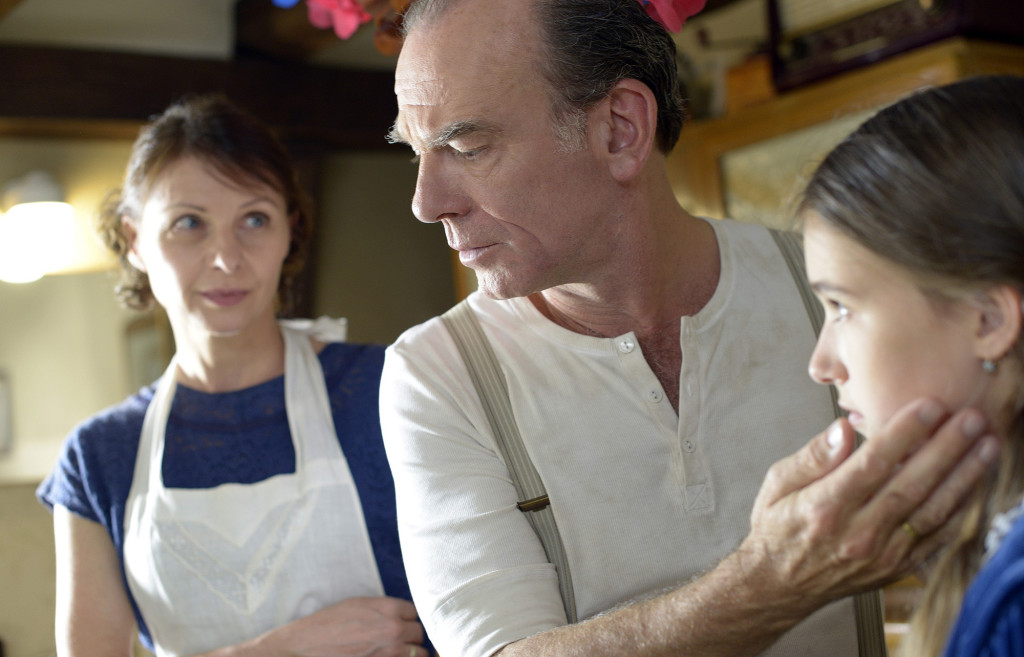
Kino, Uhrzeit
(Your Sebastian when he’s got the fever…)
FINDING VIVIAN MAIER
(Finding Vivian Maier)
John Maloof loves forced sales where he  can acquire items from an individual’s private estate. One day he makes the astonishing discovery of a box of undeveloped films and negatives that were found in an attic. There are a particularly large number of photographs of children, absorbed in play, or staring confidently
can acquire items from an individual’s private estate. One day he makes the astonishing discovery of a box of undeveloped films and negatives that were found in an attic. There are a particularly large number of photographs of children, absorbed in play, or staring confidently  into the lens. But who was behind the camera? And why were the photographs of Vivian Maier never discovered? John Maloof embarks on his research. He is hunting for clues about the life of this woman who for over forty years travelled the world with her camera. His ensuing portrait is a fascinating depiction of an artist with an open gaze to which even strangers consented.
into the lens. But who was behind the camera? And why were the photographs of Vivian Maier never discovered? John Maloof embarks on his research. He is hunting for clues about the life of this woman who for over forty years travelled the world with her camera. His ensuing portrait is a fascinating depiction of an artist with an open gaze to which even strangers consented.
Kino, Uhrzeit
TEDDY Winner 2013
HOJE EU QUERO VOLTAR SOZINHO
(The Way He Looks)
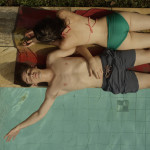 Giovana is Leo’s best friend. They spend their afternoons at the pool, awarding points for the level of their boredom and just hanging out. Leo is rather self-contained; even his schoolmates’ barbs can’t dent his sense of his own independence. This blind fifteen-year old
Giovana is Leo’s best friend. They spend their afternoons at the pool, awarding points for the level of their boredom and just hanging out. Leo is rather self-contained; even his schoolmates’ barbs can’t dent his sense of his own independence. This blind fifteen-year old 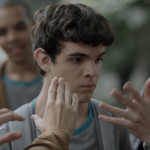 wants to take control of his own life. The arrival of a new pupil, Leo, at school prompts Leo to reassess his daily routine. As naturally as Leo becomes aware of his feelings for Gabriel, the more he allows himself to feel unsettled by his friend’s tentative advances. The winner of the
wants to take control of his own life. The arrival of a new pupil, Leo, at school prompts Leo to reassess his daily routine. As naturally as Leo becomes aware of his feelings for Gabriel, the more he allows himself to feel unsettled by his friend’s tentative advances. The winner of the 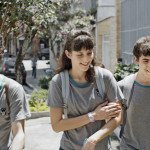 2008 Crystal Bear has the protagonists of his first feature-length drama orbit each other in an emotional universe of fierce attractions.
2008 Crystal Bear has the protagonists of his first feature-length drama orbit each other in an emotional universe of fierce attractions.
Kino, Uhrzeit
IBHOKHWE
(The Goat)
Ukwaluka is an ancient circumcision ritual  for young men still widely practiced by the Xhosa in South Africa. It marks the transition from youth to manhood. A boy who has just undergone circumcision sits in semi-darkness in a simple hut on a hill, far away from the village, as prescribed by the initiation ritual. He is covered from head
for young men still widely practiced by the Xhosa in South Africa. It marks the transition from youth to manhood. A boy who has just undergone circumcision sits in semi-darkness in a simple hut on a hill, far away from the village, as prescribed by the initiation ritual. He is covered from head  to toe with a paint made from clay which makes him look as white as a goat. This should be a period of healing, but he is cold and in pain. His grandfather, who is supposed to induct him into his new life, has not yet appeared. According to the belief system of the Xhosa, Ukwaluka also purges the boy from homosexual desires, for which there is no place in the world of adults.
to toe with a paint made from clay which makes him look as white as a goat. This should be a period of healing, but he is cold and in pain. His grandfather, who is supposed to induct him into his new life, has not yet appeared. According to the belief system of the Xhosa, Ukwaluka also purges the boy from homosexual desires, for which there is no place in the world of adults.
Kino, Uhrzeit
MARIO WIRZ
(Mario Wirz)
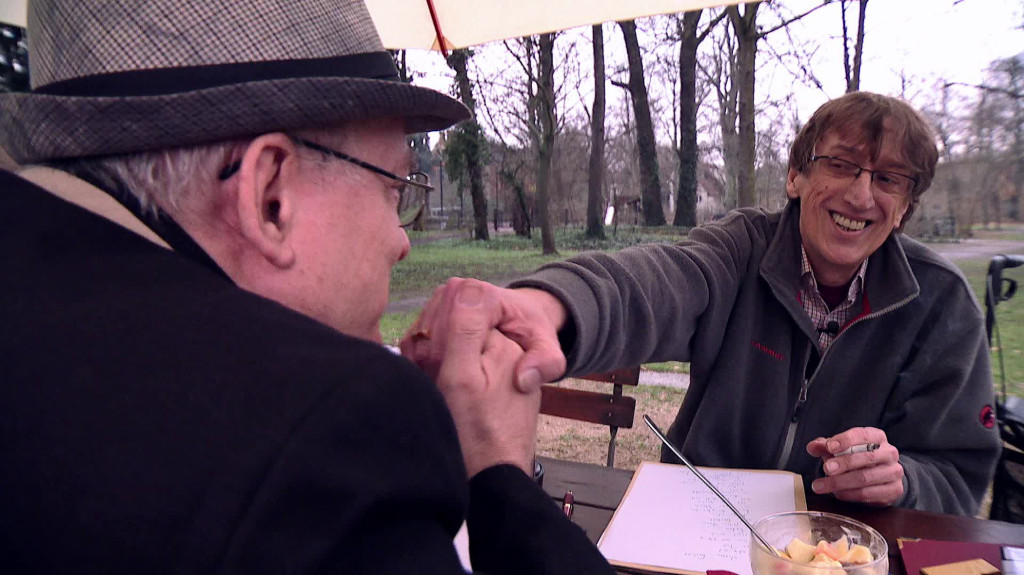
Six weeks before his death from cancer, poet Mario Wirz takes a walk with his friend Rosa von Praunheim during which he candidly shares his final thoughts on, among other things, the power of love and positive thinking: ‘Let’s live!’
Kino, Uhrzeit
TEDDY Winner 2013
MONDIAL 2010
(Mondial 2010)
A Lebanese gay couple decides to take a road trip to Ramallah. The film is recorded with their camera as they chronicle their journey. The protagonists and the viewers are invited through the couple’s conversations into the universe of a fading city.
Kino, Uhrzeit
LOVE IS STRANGE
(Love is Strange)
When same-sex marriage is legalised in New York in 2011, Ben and George decide to marry after 39 years together. Shortly after this, George, who works as a music teacher at a Catholic school, is dismissed without notice and they lose their apartment in Chelsea. George finds a place to stay with a gay couple and Ben is taken in by his nephew’s family in Brooklyn.
Impressively director Ira Sachs and his ensemble turn a story about loss of livelihood in the wake of homophobia into a sensitive study of partnerships. Alfred Molina and John Lithgow embody the deep bond between George and Ben with a touchingly tender light-heartedness, giving us a couple which enchants each other and us with their love.

Kino, Uhrzeit
PAPILIO BUDDHA
(Papilio Buddha)
Shankaran discovers a rare butterfly, the 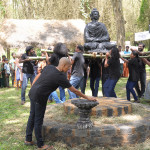 Papilio Buddha, which is only found in the Western Ghats in India. It is a near perfect moment for him and his gay friend, Jack. The American accompanies Shankaran home where he witnesses an argument between Shankaran and his father which he fails to understand. His father is the
Papilio Buddha, which is only found in the Western Ghats in India. It is a near perfect moment for him and his gay friend, Jack. The American accompanies Shankaran home where he witnesses an argument between Shankaran and his father which he fails to understand. His father is the 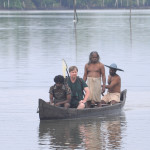 leader of a group of Dalits, or low caste ‘untouchables’ who are engaged in a brutal struggle for land rights in many places in India. Although their rights have been enshrined in the constitution since independence, the police regard Dalits as terrorists. Shankaran is put behind bars and Jack is soon expelled from the country on account of his association with him.
leader of a group of Dalits, or low caste ‘untouchables’ who are engaged in a brutal struggle for land rights in many places in India. Although their rights have been enshrined in the constitution since independence, the police regard Dalits as terrorists. Shankaran is put behind bars and Jack is soon expelled from the country on account of his association with him.
Kino, Uhrzeit
TEDDY Winner 2013
PIERROT LUNAIRE
(Pierrot Lunaire)
A young woman that regularly dresses as 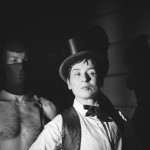 a man falls in love and seduces a young girl that has no clue that her lover is of the same sex. When the girl introduces ‘her boyfriend’ to her father he becomes skeptical and unmasks the fraud.
a man falls in love and seduces a young girl that has no clue that her lover is of the same sex. When the girl introduces ‘her boyfriend’ to her father he becomes skeptical and unmasks the fraud.
Kino, Uhrzeit
PRAIA DO FUTURO
(Praia Do Futuro)
Water is lifeguard Donato’s element and  the sea is his home. When two men are caught by a dangerous current, Donato manages to save Konrad, a German tourist, but his best friend’s life is claimed by the sea. Konrad and his rescuer get to know each other and their initial physical attraction turns into an emotional bond.
the sea is his home. When two men are caught by a dangerous current, Donato manages to save Konrad, a German tourist, but his best friend’s life is claimed by the sea. Konrad and his rescuer get to know each other and their initial physical attraction turns into an emotional bond. 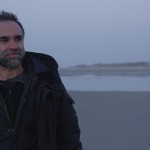 Donato follows Konrad to Berlin, a city that may not be by the sea but which is nonetheless a place where he can reinvent himself. Years later, Donato is confronted with his past when his younger brother Ayrton appears at his door.
Donato follows Konrad to Berlin, a city that may not be by the sea but which is nonetheless a place where he can reinvent himself. Years later, Donato is confronted with his past when his younger brother Ayrton appears at his door.
Berlin-based Brazilian director Karim Aïnouz follows those in search of love and identity who are prepared to risk everything to discover themselves.
Kino, Uhrzeit
QUICK CHANGE
(Quick Change)
’You’ll be beautiful and it won’t even hurt!’ This is what Dorina promises dozens of her clients. She has come to Manila from Japan to help them realise their dream of winning a Miss Gay or Miss Amazing beauty contest. Decked out in the eccentric and colourful costumes of the show there’s no sign of the earlier injections into their cheeks, nose, lips, breasts, hips and behind. Until one day the dark side of this artificially created beauty comes to light.
With documentary precision and breathtaking speed director Eduardo Roj, Jr. follows his heroine as she moves through the harsh world of a community obsessed with beauty and with improving their chances of a career.
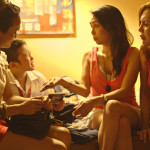
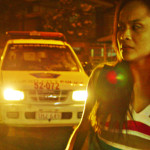
Kino, Uhrzeit
SEBASTIANE
(Sebastiane)
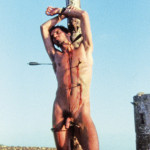 Saint Sebastian is at the centre of Jarman‘s first feature film, which he made in 1976. This is the story of the guardsman Sebastiane who is relegated to an outpost of the empire. There, the soldiers while away the time in the sweltering heat with sword exercises and erotic games. In
Saint Sebastian is at the centre of Jarman‘s first feature film, which he made in 1976. This is the story of the guardsman Sebastiane who is relegated to an outpost of the empire. There, the soldiers while away the time in the sweltering heat with sword exercises and erotic games. In 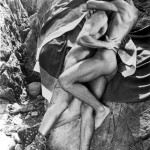 this heated atmosphere, Sebastiane comes into conflict with the sadistic captain Severus, who’s secretly in love with him. Avowing himself a Christian, he gets killed by his comrades’ arrows. Saint Sebastian, a naked youth, bound, exposed to the gaze of the public, pierced by arrows. Jarman’s
this heated atmosphere, Sebastiane comes into conflict with the sadistic captain Severus, who’s secretly in love with him. Avowing himself a Christian, he gets killed by his comrades’ arrows. Saint Sebastian, a naked youth, bound, exposed to the gaze of the public, pierced by arrows. Jarman’s 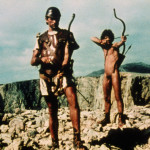 interpretation of the saint not only depicts him in the tradition of renaissance artists but also as a modern gay icon.
interpretation of the saint not only depicts him in the tradition of renaissance artists but also as a modern gay icon.
(A special recommendation of your Sebastian!)
Kino, Uhrzeit
TEST
(Test)
It’s 1985. The location is San Francisco,  America’s ‘gay mecca’. Introverted Frankie is an understudy in a prestigious modern dance company. Todd, an established dancer in the troupe, is openly homosexual. When one of the dancers falls ill one day, Frankie is asked to stand in and Todd helps him prepare. Could the illness be the
America’s ‘gay mecca’. Introverted Frankie is an understudy in a prestigious modern dance company. Todd, an established dancer in the troupe, is openly homosexual. When one of the dancers falls ill one day, Frankie is asked to stand in and Todd helps him prepare. Could the illness be the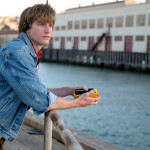 ‘gay plague’ as they are already vilifying AIDS? Ignorance, repression, panic, fear, prejudice and open homophobia are rife. The friendship between these two very different men deepens in these new circumstances.
‘gay plague’ as they are already vilifying AIDS? Ignorance, repression, panic, fear, prejudice and open homophobia are rife. The friendship between these two very different men deepens in these new circumstances.
Chris Mason Johnson’s richly atmospheric film is reminiscent of the first great films of the time depicting the challenges faced by the community.
Kino, Uhrzeit
THE DOG
(The Dog)
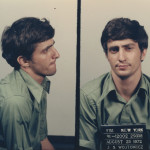 Over ten years in the making, Allison Berg’s and Frank Keraudren’s powerful documentary THE DOG follows the life of John Wojtowicz, who spectacularly attempted to secure the money for his partner’s sex change by robbing a bank in Brooklyn in 1972. His attempted heist was made famous by Sidney
Over ten years in the making, Allison Berg’s and Frank Keraudren’s powerful documentary THE DOG follows the life of John Wojtowicz, who spectacularly attempted to secure the money for his partner’s sex change by robbing a bank in Brooklyn in 1972. His attempted heist was made famous by Sidney 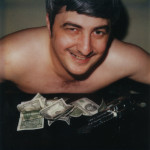 Lumet’s 1975 film DOG DAY AFTERNOON. Making use of copious archive footage, photographs and testimonials from contemporaries, the filmmakers follow not only Wojtowicz’s occasionally bizarre life and progression from lower-middle class right-winger
Lumet’s 1975 film DOG DAY AFTERNOON. Making use of copious archive footage, photographs and testimonials from contemporaries, the filmmakers follow not only Wojtowicz’s occasionally bizarre life and progression from lower-middle class right-winger 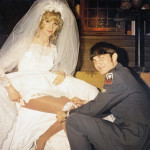 to militant gay activist, but also provide an unconventional survey of gay culture in New York during the past forty years. The Dog is truly a labour of love with Wojtowicz as its fascinating anti-hero, captured here in all his humaneness.
to militant gay activist, but also provide an unconventional survey of gay culture in New York during the past forty years. The Dog is truly a labour of love with Wojtowicz as its fascinating anti-hero, captured here in all his humaneness.
Kino, Uhrzeit
THROUGH A LENS DARKLY
(Through a Lens Darkly)
In his impressive and artistically versatile 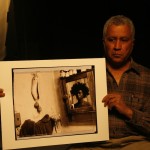 documentary, Thomas Allen Harris chronicles the history of photography from an Afro-American perspective. With the aid of countless archive photographs he makes apparent how, from the beginnings of photography to the present day, the black community used the camera as a
documentary, Thomas Allen Harris chronicles the history of photography from an Afro-American perspective. With the aid of countless archive photographs he makes apparent how, from the beginnings of photography to the present day, the black community used the camera as a 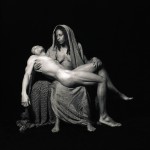 tool for social change. Making use of photographic arrangements, some of which are collage-like and others animated, the film introduces us to photographers of arthistorical importance like Roy De Carvava.
tool for social change. Making use of photographic arrangements, some of which are collage-like and others animated, the film introduces us to photographers of arthistorical importance like Roy De Carvava.
Harris once again makes use of personal material depicting his own family in order to reflect upon the emergence of a sense of photographic identity among African Americans in the USA.
Kino, Uhrzeit
TITS
(Tits)
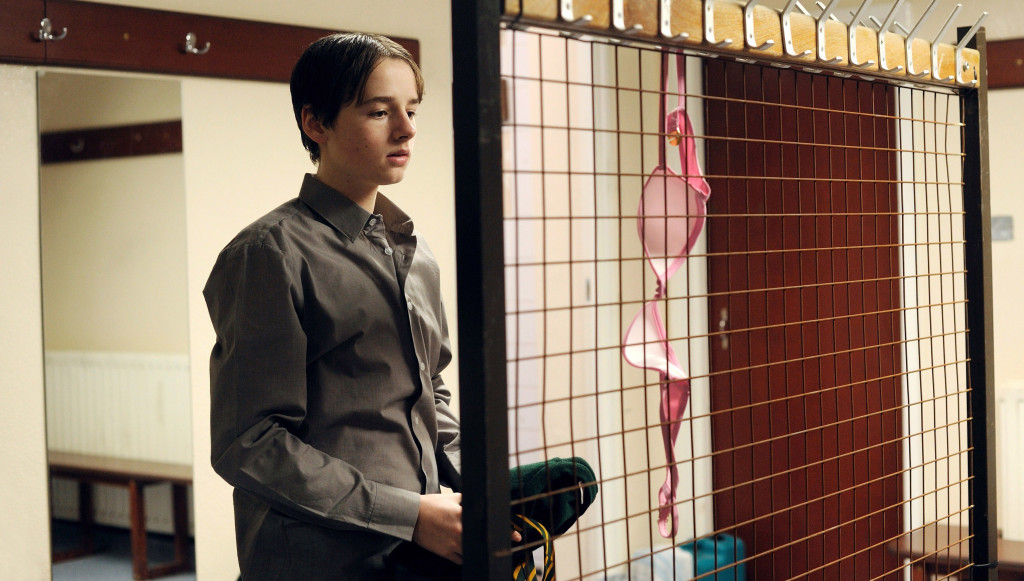
Sam, 13, hopes to conceal his breasts with a tightly worn leather belt. This slender teenager is going through a particularly tough time at his authoritarian boys’ school on account of a hormonal disorder. Desperate, he tries everything he can to avoid swimming lessons, but his worst fears are confirmed when he discovers a pink bra hanging from his peg. Nonetheless, Sam manages to find the courage to face up to one of the ringleaders and refuses to be blackmailed. The film displays a great deal of empathy for its protagonist’s fears and anxieties but also exudes charm and subtle humour.

Kino, Uhrzeit
UNFRIEND
(Unfriend)
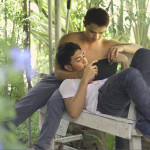 David lives with his grandmother. She supports her grandchild’s gay life, but he prefers to withdraw into his Facebook world. David would do anything for Jonathan and shares his feelings with online friends. When Jonathan posts images of his new lover, David struggles to overcome his
David lives with his grandmother. She supports her grandchild’s gay life, but he prefers to withdraw into his Facebook world. David would do anything for Jonathan and shares his feelings with online friends. When Jonathan posts images of his new lover, David struggles to overcome his  powerlessness with a feverish obsession to win back his friend. He finds himself in the grip of both real and virtual aspects of his unstable personality.
powerlessness with a feverish obsession to win back his friend. He finds himself in the grip of both real and virtual aspects of his unstable personality.
Altarejos melds real and virtual worlds into a sensual atmospheric arena that confronts us with his protagonist’s deep wounds.
Kino, Uhrzeit
VETRARMORGUN
(Winter Morning)
Maria hesitates when her best friend Birita 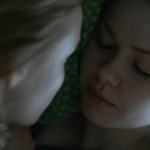 offers her some pills, but – what the hell? Her mother’s away and they are both desperate to have some fun tonight. They set off and, once the drug takes effect, start euphorically planning how they might finally escape their dreary island. But they only manage to wind up at a party where
offers her some pills, but – what the hell? Her mother’s away and they are both desperate to have some fun tonight. They set off and, once the drug takes effect, start euphorically planning how they might finally escape their dreary island. But they only manage to wind up at a party where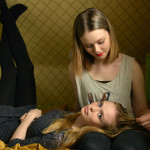 they continue celebrating. Maria’s pupils are wide open in her delicate face. She may be high, but she doesn’t feel at all well any more. It now transpires that Birita has plans for her friend: she wants Maria finally to have sex with a boy and put a stop to the stupid gossip about her being a lesbian.
they continue celebrating. Maria’s pupils are wide open in her delicate face. She may be high, but she doesn’t feel at all well any more. It now transpires that Birita has plans for her friend: she wants Maria finally to have sex with a boy and put a stop to the stupid gossip about her being a lesbian.
Kino, Uhrzeit
VIHARSAROK
(Land of Storms)
 Szabolcs, a young Hungarian footballer, plays for a German team and is good friends with his roommate Bernard. But Szabolcs decides to return to Hungary. In search of a new start in life, he decides to keep bees on his grandfather’s farm. But then Áron, a stonemason’s apprentice from the nearby
Szabolcs, a young Hungarian footballer, plays for a German team and is good friends with his roommate Bernard. But Szabolcs decides to return to Hungary. In search of a new start in life, he decides to keep bees on his grandfather’s farm. But then Áron, a stonemason’s apprentice from the nearby 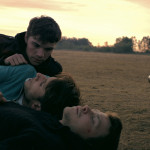 village arrives on the scene. Together they renovate the farm and before long their matey relationship turns into a love affair. Bernard comes for a visit and tries to persuade Szabolcs to return to Germany. For a while, an idyllic ménage à trois ensues. But when Bernard leaves, Szabolcs decides to stay on with Áron:
village arrives on the scene. Together they renovate the farm and before long their matey relationship turns into a love affair. Bernard comes for a visit and tries to persuade Szabolcs to return to Germany. For a while, an idyllic ménage à trois ensues. But when Bernard leaves, Szabolcs decides to stay on with Áron:  there’s no way he can leave him behind in such a repressed and intolerant environment.
there’s no way he can leave him behind in such a repressed and intolerant environment.
Kino, Uhrzeit
VULVA 3.0
(Vulva 3.0)
Many women are still deeply prudish when it comes to the relationship with their own body, while in public we see de-individualised anatomies which conform to the standards of attractiveness used by the porn industry. The resultant insecurity many women feel about their own bodies has proven to be a gold-mine for cosmetic genital surgery.
it comes to the relationship with their own body, while in public we see de-individualised anatomies which conform to the standards of attractiveness used by the porn industry. The resultant insecurity many women feel about their own bodies has proven to be a gold-mine for cosmetic genital surgery.
With their comprehensive research into the history of this particular aspect of the female anatomy in the 21st century, the directors shed light on it, from sex education to censorship, from the airbrushing of ‘misshapen’ labia in pornographic images to the work of activists against female genital mutilation – and in doing so celebrate the diversity of the female body.
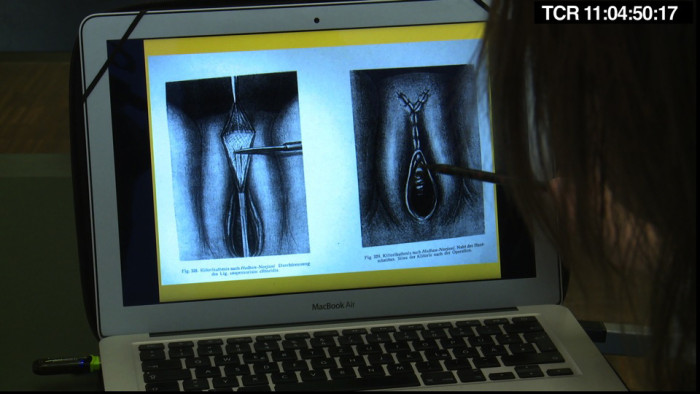
Kino, Uhrzeit
YA GAN BI HAENG
(Night Flight)
Yong-ju bumps into his ex-best friend,  Gi-woong. They are in the same class but have long since gone their separate ways. Gi-woong’s gang is notorious for their cruel bullying of an eccentric classmate named Gi-taek. His attempts to regain their old friendship mean Yong-ju also runs the risk of becoming a target of this terrorising
Gi-woong. They are in the same class but have long since gone their separate ways. Gi-woong’s gang is notorious for their cruel bullying of an eccentric classmate named Gi-taek. His attempts to regain their old friendship mean Yong-ju also runs the risk of becoming a target of this terrorising  clan, but he refuses to give in. Instead, Yong-ju cleverly draws Gi-woong into a power game of mutual humiliation and burgeoning memories which triggers a dangerous emotional duel. The director of last year’s Panorama film WHITE NIGHT has chosen anonymous and abandoned urban spaces in which to depict the emotional turmoil gripping the two schoolboys.
clan, but he refuses to give in. Instead, Yong-ju cleverly draws Gi-woong into a power game of mutual humiliation and burgeoning memories which triggers a dangerous emotional duel. The director of last year’s Panorama film WHITE NIGHT has chosen anonymous and abandoned urban spaces in which to depict the emotional turmoil gripping the two schoolboys.
Kino, Uhrzeit
YE
(The Night)
A young man stands in front of a mirror. 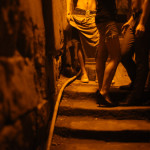 Every evening, he appraises his appearance, attired in a new shirt, leaves his apartment and waits in a poorly lit alleyway for his johns. One night he meets a female prostitute of his age who’s new in this part of town. They flirt and wander the streets and name themselves after flowers: he calls himself Tuberose and she, Narcissus. The strangers they follow remain faceless – until Rose, a one-night stand, falls in love with Tuberose. In his visually impressive, sensual debut film in which he also plays the leading role this 21-year-old director demonstrates all the poetic intensity of a Jean Genet in describing these three misfits’ mute search for intimacy.
Every evening, he appraises his appearance, attired in a new shirt, leaves his apartment and waits in a poorly lit alleyway for his johns. One night he meets a female prostitute of his age who’s new in this part of town. They flirt and wander the streets and name themselves after flowers: he calls himself Tuberose and she, Narcissus. The strangers they follow remain faceless – until Rose, a one-night stand, falls in love with Tuberose. In his visually impressive, sensual debut film in which he also plays the leading role this 21-year-old director demonstrates all the poetic intensity of a Jean Genet in describing these three misfits’ mute search for intimacy.
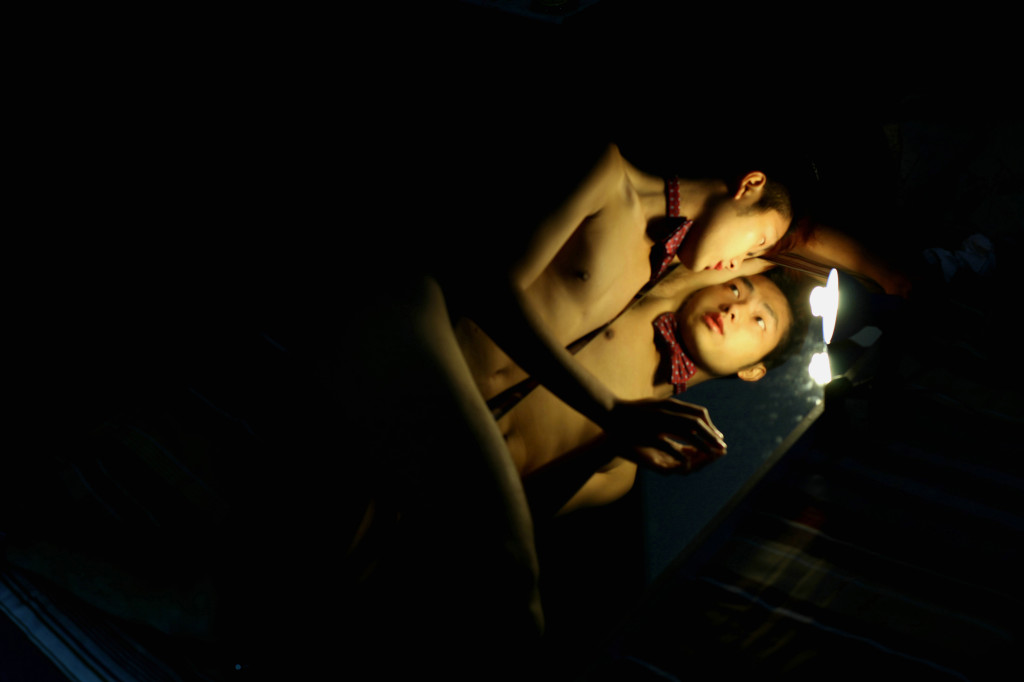
Kino, Uhrzeit
YVES SAINT LAURENT
(Yves Saint Laurent)
At the age of 21 talented young designer Yves Saint Laurent takes up a position as assistant to couturier Christian Dior. After Dior’s death Saint Laurent is made artistic director of one of the world’s most renowned fashion houses. His first collection is a triumphant success and this shy fashion genius becomes famous overnight. In Pierre Bergé he finds the love of his life and together they found their own label: ‘Yves Saint Laurent’.
Jalil Lespert creates a monument to one of the most creative proponents the world of fashion has ever known. Saint Laurent’s innovative creations revolutionised haute couture and are still regarded as the epitome of French lifestyle.


Kino, Uhrzeit



 In his documentary, Thomas Allen Harris chronicles the history of photography from an Afro-American perspective. With the aid of archive photographs he makes apparent how the black community used the camera as a tool for social change. Making use of photographic arrangements,
In his documentary, Thomas Allen Harris chronicles the history of photography from an Afro-American perspective. With the aid of archive photographs he makes apparent how the black community used the camera as a tool for social change. Making use of photographic arrangements,  some of which are collage-like and others animated, the film introduces us to photographers of arthistorical importance.
some of which are collage-like and others animated, the film introduces us to photographers of arthistorical importance. Over ten years in the making, Allison Berg’s and Frank Keraudren’s powerful documentary THE DOG follows the life of John Wojtowicz, who spectacularly attempted to secure the money for his partner’s sex change by robbing a bank in Brooklyn in 1972. His attempted heist was made famous by Sidney
Over ten years in the making, Allison Berg’s and Frank Keraudren’s powerful documentary THE DOG follows the life of John Wojtowicz, who spectacularly attempted to secure the money for his partner’s sex change by robbing a bank in Brooklyn in 1972. His attempted heist was made famous by Sidney  Lumet’s 1975 film DOG DAY AFTERNOON. Making use of copious archive footage, photographs and testimonials from contemporaries, the filmmakers follow not only Wojtowicz’s occasionally bizarre life and progression from lower-middle class right-winger
Lumet’s 1975 film DOG DAY AFTERNOON. Making use of copious archive footage, photographs and testimonials from contemporaries, the filmmakers follow not only Wojtowicz’s occasionally bizarre life and progression from lower-middle class right-winger  to militant gay activist, but also provide an unconventional survey of gay culture in New York during the past forty years. The Dog is truly a labour of love with Wojtowicz as its fascinating anti-hero, captured here in all his humaneness.
to militant gay activist, but also provide an unconventional survey of gay culture in New York during the past forty years. The Dog is truly a labour of love with Wojtowicz as its fascinating anti-hero, captured here in all his humaneness. offers her some pills, but – what the hell? Her mother’s away and they are both desperate to have some fun tonight. They set off and, once the drug takes effect, start euphorically planning how they might finally escape their dreary island. But they only manage to wind up at a party where
offers her some pills, but – what the hell? Her mother’s away and they are both desperate to have some fun tonight. They set off and, once the drug takes effect, start euphorically planning how they might finally escape their dreary island. But they only manage to wind up at a party where they continue celebrating. Maria’s pupils are wide open in her delicate face. She may be high, but she doesn’t feel at all well any more. It now transpires that Birita has plans for her friend: she wants Maria finally to have sex with a boy and put a stop to the stupid gossip about her being a lesbian.
they continue celebrating. Maria’s pupils are wide open in her delicate face. She may be high, but she doesn’t feel at all well any more. It now transpires that Birita has plans for her friend: she wants Maria finally to have sex with a boy and put a stop to the stupid gossip about her being a lesbian. Papilio Buddha, which is only found in the Western Ghats in India. It is a near perfect moment for him and his gay friend, Jack. The American accompanies Shankaran home where he witnesses an argument between Shankaran and his father which he fails to understand. His father is the
Papilio Buddha, which is only found in the Western Ghats in India. It is a near perfect moment for him and his gay friend, Jack. The American accompanies Shankaran home where he witnesses an argument between Shankaran and his father which he fails to understand. His father is the  leader of a group of Dalits, or low caste ‘untouchables’ who are engaged in a brutal struggle for land rights in many places in India. Although their rights have been enshrined in the constitution since independence, the police regard Dalits as terrorists. Shankaran is put behind bars and Jack is soon expelled from the country on account of his association with him.
leader of a group of Dalits, or low caste ‘untouchables’ who are engaged in a brutal struggle for land rights in many places in India. Although their rights have been enshrined in the constitution since independence, the police regard Dalits as terrorists. Shankaran is put behind bars and Jack is soon expelled from the country on account of his association with him.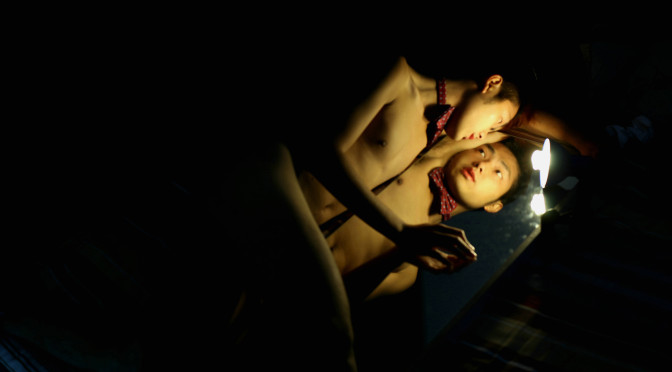



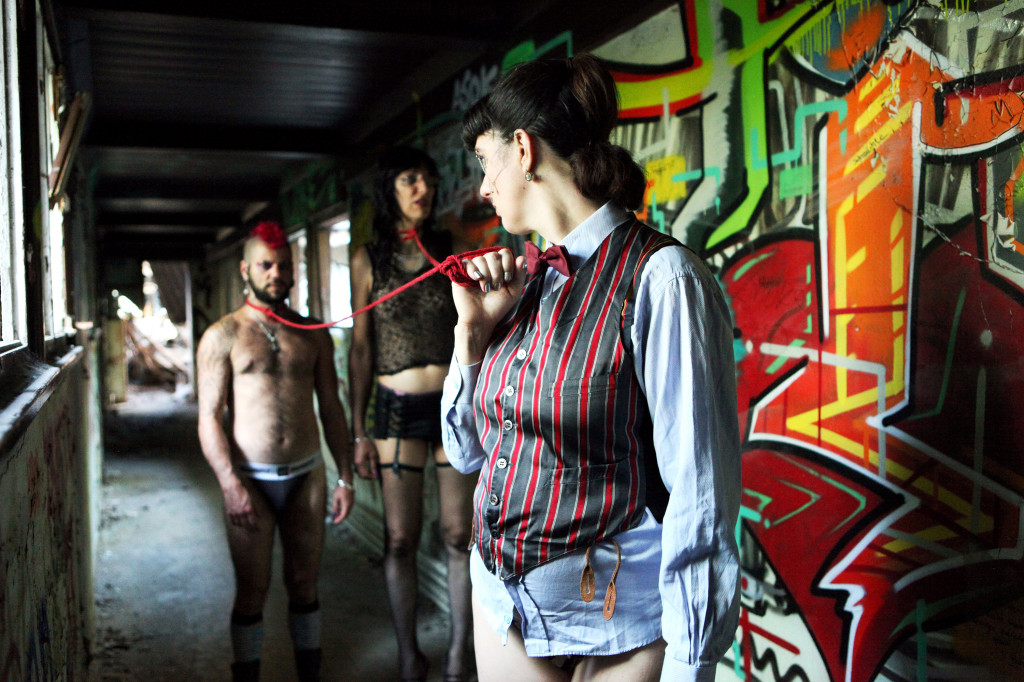






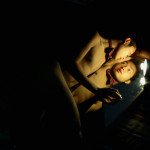

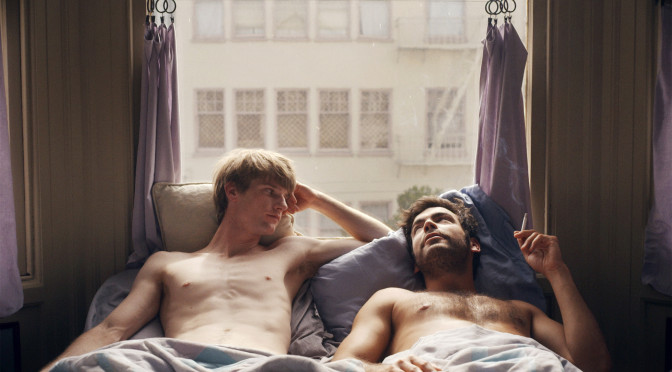



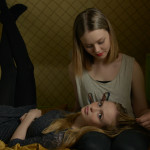




















 Saint Sebastian
Saint Sebastian



